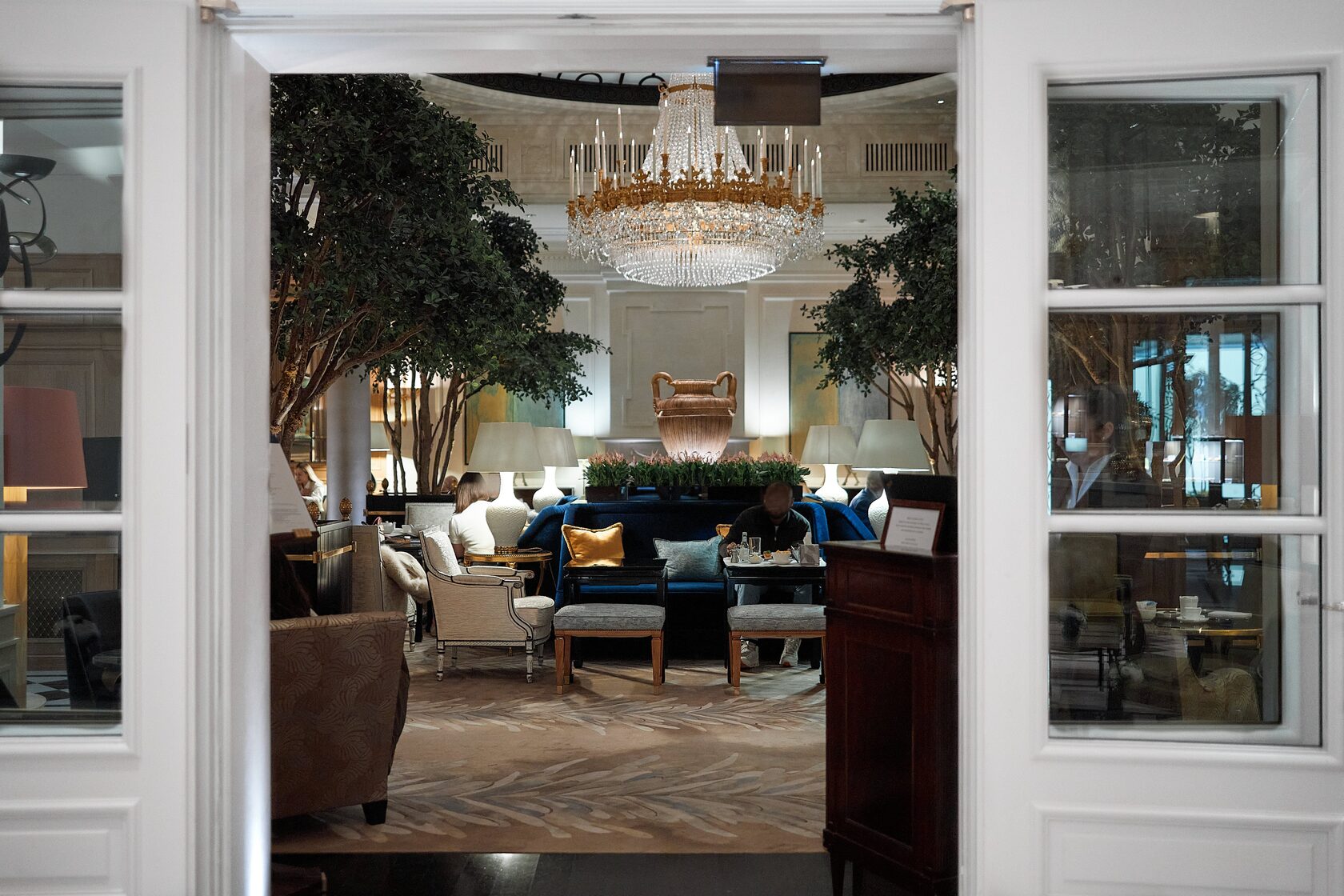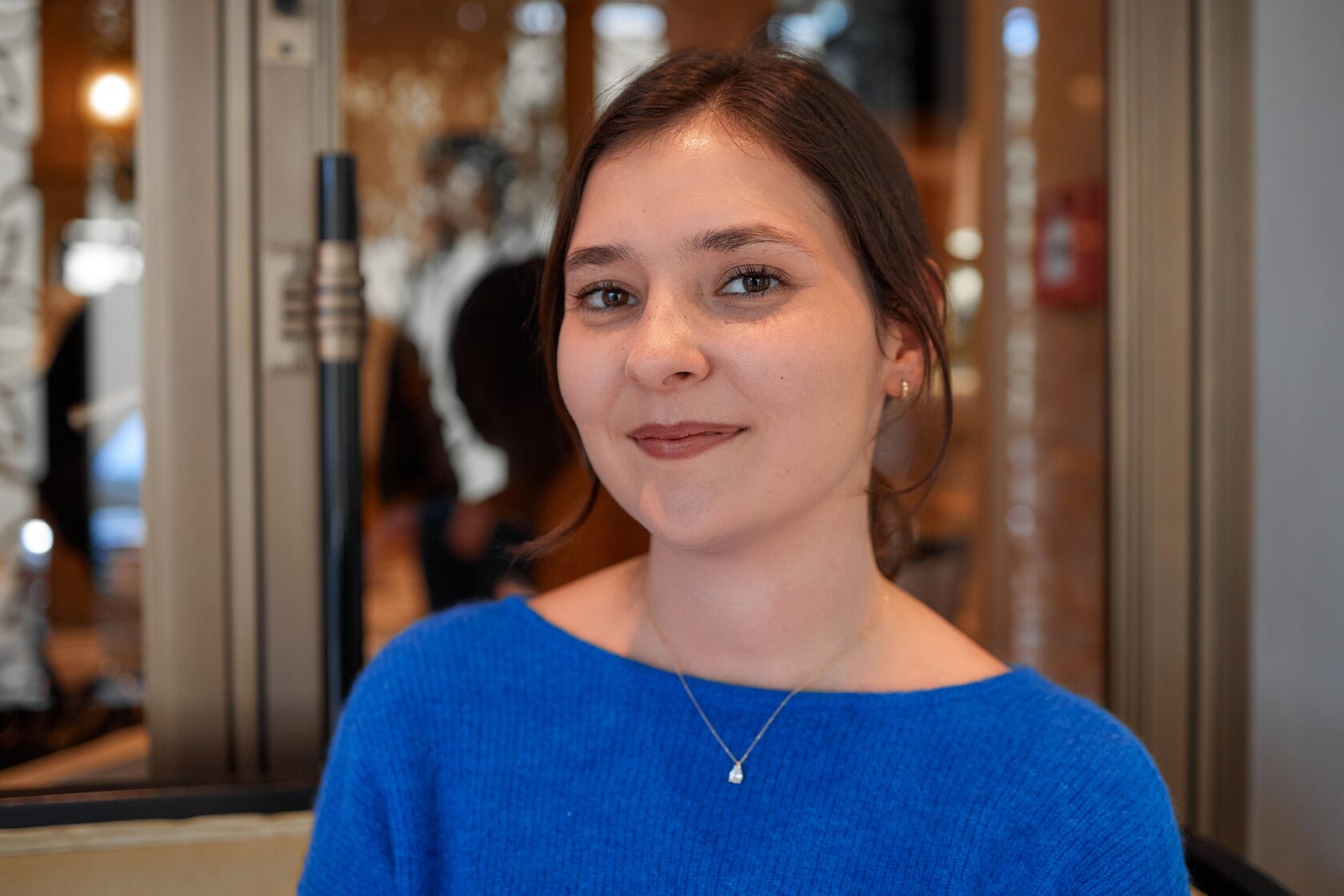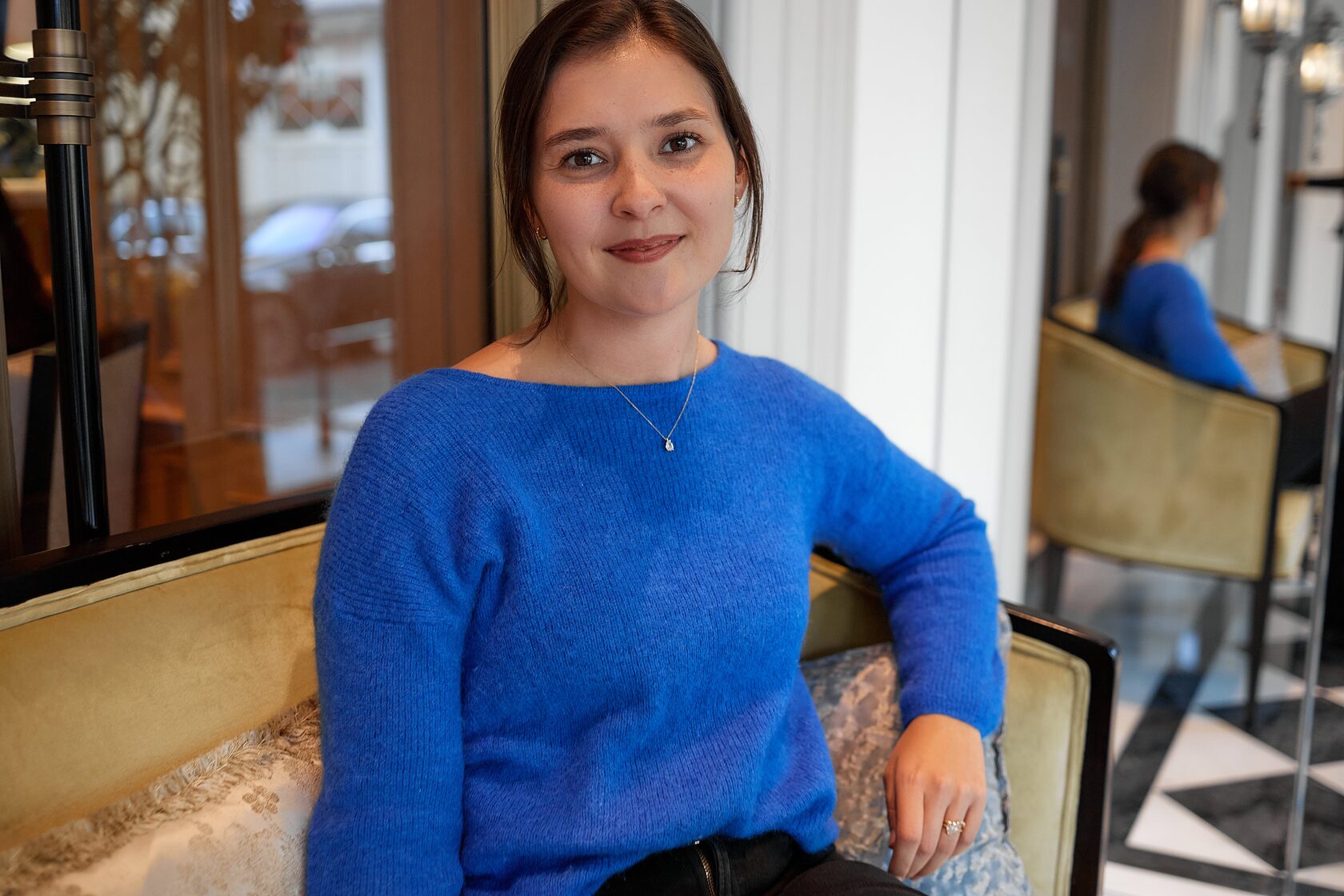Imagine stepping into a room filled with the buzz of aspiring entrepreneurs, gathered together for an evening of networking and collaboration. It was at one such event, a Founders Dinner in Zurich, organized by the Swiss Startup Association, that I first encountered Tessa Franzen. At just 26 years old her profile stood out and I knew wanted to share her story with Clever Magazine’s readers.
Two months later, there we were, seated across from each other in the elegant ambiance of Baur au Lac Hotel in Zurich, immersed in a conversation about American education, NYC and San Francisco ambiance, dynamic world of tech, startups scene and the present realities of our lives in Switzerland.
Tessa's educational journey began in France before eventually settling in Switzerland. She pursued her IB at the International School of Geneva and then ventured to the United States to study computer engineering at Brown University.
As a student at an Ivy League institution, she gained exposure to various career paths in tech and initially joined Apple as a software engineer in San Francisco.
Discover Tessa’s reflection on the value of her Ivy League education and her career path in Silicon Valley.

Reflecting on your experience as an international student at an Ivy League University, how did this environment shape your personal growth?
I think I came into it a little bit naive because I didn't know anybody who had been at an Ivy League institution. I didn't realize everything that would happen around me: all the student life, the networking, the recruiting, the stress and the personal growth from that. So for me it was a learning experience.
Everything just happened to me at once. But I really learned to appreciate all the support from the university because I was a bit lost, like being an adult, having to do laundry, trying to figure out internships and jobs.
You're stressed and you learn a lot about yourself in those situations. You learn where you can get to in your life. I feel like I never expected that I could go to a place like Apple afterwards.
Given the intense competition associated with Ivy League universities, especially at a young age, many students may find it daunting to navigate. How did you personally manage the pressure?
There’s a lot of pressure, but that doesn't necessarily mean competing against each other. Some classes are really difficult but generally everyone works together and tries to be helpful. It’s not like anyone is hiding books or something.
The American undergraduate education system is renowned for offering students a high degree of flexibility in their course of study. Up to the first two years, students have the opportunity to explore a wide range of disciplines, and some may even enter college without declaring a specific major or switch later. Do you consider it an advantage and was this the case at Brown?
I think that whenever it's Ivy League, people who are there are really accepted because they are very passionate about something. I know many people who switched, many people who wandered for a few years and tried out a lot of things. But when it comes to engineering, medicine and some other disciplines, there are too many requirements. With all other subjects you can definitely have flexibility to explore different classes, and that can become a big advantage for many students.

To whom would you recommend Brown? What type of student?
To somebody who's open minded and excited about learning.
I think a lot of the other Ivies like their master's students more. Brown, on the other hand, is a small campus with a lot of personalized support given to undergraduate students. If you need more confidence in your technical abilities, Brown would be good to support you.
What attracted you to the tech industry?
Everyone I had around at my university, who was doing internships in tech, generally had good working experiences and I think better work life balances than what I've heard of from other industries.
When you're studying at tech, you're interested in the newest techs, large tech companies or startups, you're always working on the latest thing and that's kind of exciting.
How did your time at Brown University contribute to your career?
First of all it exposed me to the computer science career path. Maybe now it is more present in schools, but when I was in school, that wasn't really a career path that was discussed with me. It also exposed me to all those big jobs at big tech companies that recruited at Brown. This helped me in my career path.
For all software engineer new grad roles, there's a lot of applicants, and there's not that many ways to differentiate yourself. Having the Brown University on the resume definitely says that you have some base level of intelligence. So altough you don't yet have work experience, you can take it from there.
Also all the people you meet who work at these places and then can refer you - the contacts and the resources I had access to was invaluable. The network you get as an insider is very important.

Could you shed some light on your experience with the interview process at Apple? What was it like, and how did you prepare for it?
My initial connection to Apple came through a roommate who secured an internship there. So we come again to the importance of networking, especially for new grads. My best advice is not to underestimate it.
Big companies have no idea about who’s good or who's not. It’s very hard to tell, even from your resume. Maybe you had some internships and then you stand out, but just a little bit. It’s only if you have a referral, then you start to really have a chance. It still doesn't guarantee the job, but it gives you the interview.
It was all happening in the fall semester, and I traveled at least four times to be interviewed in Seattle and in San Francisco. Sometimes companies send you coding assignments ahead of time.
So there's usually a technical screen as the first rounds where they ask you coding questions. It's all very standardized. The final rounds usually depend on the company, it can take four or five interviews. Then they have a systems design question, which is usually difficult for a new grad because you've never designed a system.
In the end, I think a lot of it is not necessarily about you getting it right. It’s more about them seeing your thought process and how you react to their feedback, how well you’re explaining yourself in general. They want to see how you would work in their team.
As you see the process is quite long usually, overall the interview process with Apple lasted about three months. Google is equally long. Even longer. But companies that recruited at Brown were forced to follow certain deadlines from Brown, so that was helpful. If they gave you an offer in September, then they had to wait until the end of November for you to gather offers from other places, which I think big companies hated, because they expect the now or never style of cooperation.
As for the preparation, there was this book I used, called “Cracking the coding interview” and leetcode.com website that helps you train your coding skills. Those helped me a lot.
Could you describe your transition from student life to working as a software engineer at Apple in San Francisco? Were there any unexpected or challenging aspects you encountered?
When you start as a new grad, you just come into this world that you don't have any experience in, and there's all these really smart people around you, and you're just getting bombarded with information. You're learning every day.
It was a little bit overwhelming because I felt I had to learn all the time. I have also experienced some imposter syndromes, questions like "How did I end up here?", "Why did they hire me?" But then you start to learn how to navigate, and you realize that most people are ready to help you grow.
I think adjusting to the new working lifestyle was quite stressful. You're very tired at the end of the workday, I would think “How can I ever have any hobbies if I'm passed out at six when I get home?” But you get used to it, I guess. So this was a big adjustment. And just like coding at school is not the same as at university, in real life you're not doing anything for a grade anymore.
You were at Apple for almost 5 years and was promoted to Senior Software Engineer just 3 years after you joined the company. Can you share some insights into the ambiance and your life in the Valley?
My manager and the whole team, everyone was very supportive. You start with easier tasks, go to harder tasks to eventually do your own tasks. I believe once you are there, they want you to do well, they trust in you.
In Silicon Valley itself it's all very spread out. I think San Francisco, where we lived, was much nicer. Most of our friends from the Valley tried to live in San Francisco even though their commutes were far.
In San Francisco, it is very hard to have friends who are not working in tech, and I think it’s good to have people from other industries around you for diversity of thought. So whenever someone was not a software engineer or a product manager it would get me very excited [laughs - editor’s note].

As someone who has navigated both the East and West coasts as an international student and a young professional, could you share your insights on the differences between these two dynamic regions?
Initially, I went to the east coast because my mother insisted that California was too far away. Also, both of my sisters already lived in New York, and I went to visit them a lot during my school years. I liked New York. I think everyone wants to live there for a little while.
Boston was also nice. I've always heard it's a very student based town. Although now reflecting on it once you're a little farther in your life, it's maybe not as fun if there's students around you all the time.
And San Francisco, if you're in tech, is an obvious choice for your career.
How do you compare your experiences working at Apple in San Francisco versus Zurich? Are there any notable differences in the work culture or the projects you've been involved in?
As per my work itself, it wasn't much of a transition. It was the same team. The work was the same. Apple community, the company culture. The transition was easy for me.
Regarding the lifestyle change in Switzerland, I like it that I can just go skiing every weekend. You can do this from San Francisco too, but it's much farther. The lakes are beautiful, and the access to European cities is great. In California, you are very isolated. You can go to Mexico or Canada or Vancouver. Of course here I am also much closer to my family. In the end, life is not all about work.
What key factors do you believe students should prioritize when selecting their future university?
I know it's overwhelming, because as a high schooler, you feel you just need to get in somewhere. You also adjust a lot as an 18-year-old. The Brown community exposed me to ideas that I was never exposed to before.
Visiting the schools of your choice in person is very important. There were definitely some that seemed fine on paper, but when I came to see them, I wasn’t able to imagine myself being there.
It’s also important to know whether you want to be in a city or not. I think for an 18-year-old coming from abroad, New York can be quite overwhelming or at least it would have been for me, to be somewhere like NYU or Columbia. It was good to be in a smaller city for me.
Also the size of the university is another factor. Brown is not as big as the other ones. It is important to understand what your priorities are, both as a person, and as a future student.

What advice would you give to aspiring students aiming for prestigious institutions like Brown, especially concerning the admissions process and preparing a standout application?
As per admission process, SATs were very important. I didn't know how to do standardized tests and English was not my first language of study. I studied in French up until the last two years of high school. So it was something that I needed to work on very hard just to match the other American candidates.
Then, there are the essays. You need to have strong writing and storytelling skills.
It is extremely important to not leave everything until the last minute, because the admissions committees look at the whole duration of your high school life. Don't panic if you had one bad semester, but definitely don't leave everything to catch up in the last semester only. That will not work.
If you need a lot of extracurriculars, it's also easier for your own personal stress level to arrange everything in advance.
How do you believe your own profile stood out to Brown University, ultimately leading to your acceptance offer?
I think my strongest point was academic excellence. I have always been excelling in math and physics. Universities ask you to show the reports for the last three or four years of your studies, sometimes even for all of the schools you have attended.
It is very important to find a way in which you stand out. I think being a woman in STEM now stands out much less than when I applied, but I think it probably still does in a way.
It is also crucial to showcase how you would benefit every particular university, and in which way you could contribute to its community.
What are some of the most exciting developments you foresee in the tech industry in the coming years, and how do you think they will impact society?
It’s very difficult to predict anything, especially with AI, given its rapid pace of evolution. Every day, there’s a new discovery that sparks someone’s imagination, leading to many new and fresh ideas that will make certain things possible that we can’t even imagine right now.
One area that I’m very excited about is the use of machine learning to explore and discover new materials, proteins, and medications. The potential impact on healthcare and sustainability is huge!
As a side note, I’m looking forward to seeing how the robotics world develops and hopefully have the ability to replace all my chores!








